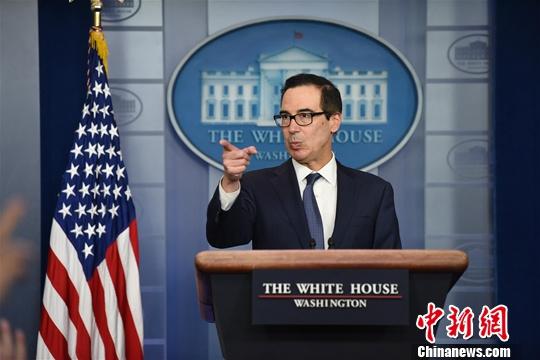Chinanews, July 27th, comprehensive report, the United States continues to be raging in the epidemic, especially in the western and southern regions. California and Florida have successively exceeded New York State in the number of confirmed cases, becoming the top two states in the number of confirmed cases, with medical staff in many places. Shortage phenomenon. The White House and the Senate Republicans discussed a new round of epidemic relief bills that will be announced on the 27th. In addition, 100 days before the election, polls show that the public's support for President Trump's handling of the epidemic has dropped to a new low.
On July 15, local time, in Florida, USA, locals drove in a long queue waiting to be tested for the new crown virus. Image source: Visual China
Florida diagnosed with shortage of medical staff in many places beyond New York State
The epidemic continues to raging in the western and southern parts of the United States. Florida became the second state after California to surpass New York with confirmed cases.
According to Reuters statistics, the total number of confirmed cases in Florida increased by 9,300 on the 26th, reaching a total of 423,855. The total number of confirmed cases in Florida is second only to California, which currently has 448,497 confirmed cases. New York ranks third with 415,827.
Despite this, New York is still the state with the highest number of deaths among all states in the United States, with more than 32,000 deaths, while Florida ranks eighth with nearly 6,000 deaths.
In addition, the epidemic continues to raging, exhausting medical staff, and the surge in cases has also tested the hospital's ability to accept treatment. In cities such as Houston, Texas, Miami, Florida, and Baton Rouge, Louisiana, the shortage of medical personnel is becoming more and more serious.
US Treasury Secretary Mnuchin's data map. Photo by China News Agency reporter Chen Mengtong
The new bailout bill will reveal the Finance Minister’s opposition to additional unemployment benefits
US Treasury Secretary Steven Mnuchin said on the 26th that the new round of the epidemic relief bill will be made public on the 27th local time.
Because of various differences, the White House and the Senate Republicans have been unable to reach a package agreement on the bailout plan. One of the differences includes the tax cuts requested by President Trump.
Mnuchin recently announced that the White House and Senate Republicans have reached a "basic agreement" on a $1 trillion COVID-19 rescue plan. The overall outline of the Republican plan has emerged, including $105 billion in education funds, $16 billion in new funds for testing, the second round of loan exemptions for small businesses, the second round of direct payments, and a series of programs designed to help employers make people safe and secure. Tax incentive policies for returning to work.
However, Mnuchin also stated on the 26th that he strongly opposes an additional $600 weekly unemployment benefit subsidy.
According to reports, since March, the United States has introduced a series of fiscal stimulus plans, with a scale of $3.3 trillion.
US media reported that this is the first time Trump has publicly worn a mask since the outbreak of the new crown epidemic in the United States.
Trump's satisfaction with the epidemic hit a new low
With only 100 days left before the November election in the United States, a new poll showed that due to the surge in infections everywhere, popular support for President Trump's handling of the new crown virus pandemic has dropped to a new low.
A survey conducted by the Associated Press and the NORC Public Affairs Research Center found that only 32% of Americans said they support the president's response to the new crown epidemic, a 12-point drop compared to the same survey released in March.
Since March, the president’s satisfaction with economic issues has also shown a gradual decline. Forty-eight percent of respondents said they agreed with Trump's handling of the economy during the pandemic, down from 56% in March.
Overall, only 38% of Americans said they approve of the president’s performance in the White House. Partisan opinions are clearly divided, with 81% of Republicans expressing support for Trump's work performance.

